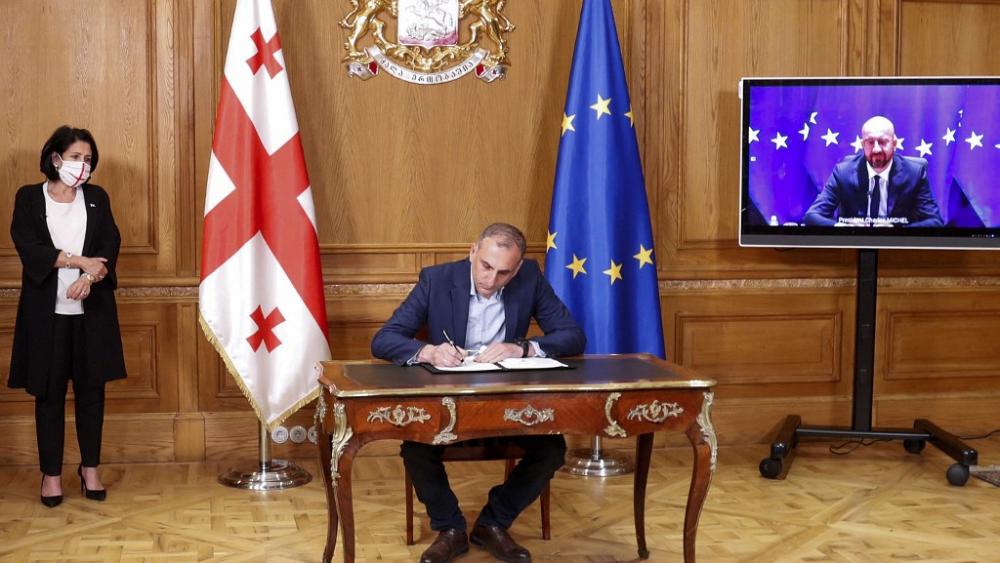
On 19 April, the government and opposition agreed to end the political crisis and signed an accord brokered by European Council President Charles Michel. The deal, if implemented, would pave the way for the release of two jailed opposition figures, electoral and judicial reforms and bring an end to the opposition lawmakers boycott of the parliament and the possibility of new parliamentary elections.
Georgia has been in a political crisis since the Georgian Dream ruling party won a parliamentary election in October 2020, which the opposition disputed. After the vote, opposition politicians refused to assume their seats in the new parliament and staged mass protests to demand snap polls.
The February jailing of opposition politician Nika Melia, chairman of the United National Movement (UNM), sparked street protests and led to the resignation of the country’s prime minister, exacerbating the crisis.
The deal brokered by the European Union called on its signatories to “conduct our duties until the next parliamentary elections with mutual respect and in recognition of the importance of unity in the interest of Georgia’s stability”. It also included, among other things, judicial and electoral reforms and called on the country to initiate an amnesty law within one week of the signing for “all violations and convictions” stemming from the 19-21 June 2019 protests.
